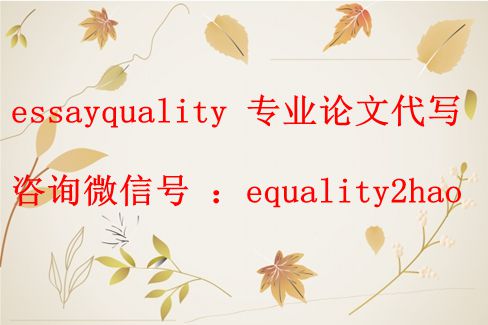铭信品质代写-专业写作团队为您提供:北美MKT代写、北美市场营销学代写、MKT代写、留学生Arts艺术学代写、艺术学online exam/quiz代考、网课代考、essay代写、Arts代写、Geography地理学代写、BIO生物学代写、HIS历史学代写、网课代修、exam代考、、exam代考、网课托管、online exam代考、online exam代考、quiz代考、exam代考....
Developing Countries perception about WTO
Developing countries that had been mistrustful of the GATT as a rich man’s club played a much fuller role than in any of the preceding Rounds. Of the 134 members of the WTO, 99 are classified in the UN as developing countries. This change resulted partly from the economic conversion of many governments during the 1980s and from a reassessment of the relative advantages of binding trade rules. The new commitment to the multilateral system is more likely to be followed through if the system is seen to support development. The aim of these Briefings is to identify the ‘development interest’ in the main areas of current trade policy and forthcoming trade negotiations, such as a Millennium Round. WTO members need to balance the benefits of rules restricting protectionist and arbitrary behavior against the costs of compliance and the penalties for noncompliance. Relatively weak players, developing countries are likely more often to be the victims rather than the perpetrators of global protectionism and anticompetitive behavior and could therefore expect to gain most from the rules. On the other hand, as numerically strong but technically weak members, they may regard the design or application of the rules as biased towards the interests of the developed states that drafted them, despite the continuation of special treatment. Given the WTO’s consensus structure of decision-making, it is in the interests of all members that the developing countries play a sufficiently strong role to ‘own’ the results. Hence, the call for the next negotiations is to be a ‘Development Round’. Implementation of the Uruguay Round The Uruguay Round significantly advanced the cause of a liberal, rule-based trading system, but some areas of implementation and coverage are problematic for developing countries, namely the spread of new forms of protectionism (with anti-dumping action a notable example), and limited progress on areas of particular interest such as clothing and textiles and agriculture. Recourse to anti-dumping is continuing to prove difficult for developing country exporters, even though changes in the Uruguay Round have affected procedures.
At the end of 1996, the European Union had 143 anti-dumping measures in place, the USA 198, Canada 93, and Australia 47. Of the eight textiles cases through by the European Union since the Uruguay Round, India has been involved in six and Pakistan, Egypt and Indonesia in three. A new cause for concern is the advent of ‘chain complaints’, whereby an unsuccessful complaint is followed immediately by a virtually identical one, creating uncertainty for user industries. At the same time, developing countries have become active in taking anti-dumping action against industrialized country exports. Whilst the Uruguay Round liberalized trade in clothing and textiles, implementation is end-loaded. The Multitier Arrangement (MFA), which has provided since 1974 a freestanding multilateral framework for the proliferation of discriminatory quantitative restrictions against 35 developing countries and economies in transition, is to be phased out under the Agreement on Textiles and Clothing (ATC). All bilaterally agreed and MFA-based quantitative restrictions are to be notified to the Textiles Monitoring Board for removal according to a graduated schedule, with expanded quotas in the interim. However, the ATC may not result in a significant liberalization for developing exporters until 2005. First, the phase-out could become more restrictive for suppliers whose quota growth does not match the growth in demand. Second, integration is heavily end-loaded: restrictions on items accounting for almost half the 1990 volume of trade do not need to be removed until the final 2005 deadline. The problem of agriculture, where OECD protectionism hinders developing countries exploiting their comparative advantage, is that progress was only partial. While the Agreement on Agriculture began the process of establishing, a framework of trade rules for agriculture similar to those already existing for manufactures. Developing countries as a group should gain from agricultural liberalization but this broadly beneficial impact arises largely from the opening of protected markets to competition (especially in the industrialized states) an outcome, which remained substantially unachieved in the Uruguay Round.
Agriculture
While the direct effects of the Agreement on Agriculture have not been great, the same will not necessarily be true of its successor. Developing countries (and socio–economic groups within them) will be affected: n indirectly via the impact of subsidy removal on the world market (leading to a rise in prices and, possibly, reduction of supply); n directly by any constraints on their own action to develop agriculture to address the new opportunities and challenges. Although gains from full liberalization would exceed losses, progress in agriculture may be crab-like as it results from political trade-offs. This can produce a complex mix of short- and medium-term winners and losers.
TRIPs
Developing countries already face severe implementation problems, but the industrialized countries are likely to demand accelerated implementation and to negotiate on new areas and higher levels of intellectual property right (IPR) protection. The development interest is not clear-cut. There are recognized benefits for developing countries from effective protection, which should lead to greater innovation worldwide from which all would gain. However, there are also costs, which will vary depending on a country’s stage of development and its industry/technology base.
Services
Trade and investment in services are increasingly important for developing countries. Although the GATS process set benchmarks and a framework for future liberalization, there has not yet been any significant additional liberalization. The main benefits of the GATS for developing countries stem from the constraints on backsliding and the encouragement to foreign investment of a more stable policy environment. Developing countries would gain most from further liberalization of their domestic markets. Simply permitting foreign firms into an uncompetitive market produces relatively limited benefits. To that extent, their general interest in a further international liberalization of services may be limited.
Environment
The WTO Committee on Trade and Environment (CTE) has a broad mandate to study the relationship between environment and the trade, and to make recommendations about any changes that might be needed in trade agreements. A central question is whether international trade is good or damaging to the environment. Concern has been growing since the 1960s but there is no straightforward answer, and hence no consensus on policy solutions. The current rules are that countries may take any environmental measure against imported products provided equivalent measures apply to domestic output. Hence, strict product standards on environmental grounds can act as an effective barrier to trade, but this ‘product standard rule’ does not extend to ‘production processes’: trade policy cannot be used to restrict imports of goods which meet such standards but have been produced using environmentally damaging processes. There is concern that differential environmental standards will affect trade competitiveness and lead to industrial flight and pollution havens in developing countries. Empirical evidence linking environmental control costs to loss of international competitiveness concludes that: an abatement costs are on average a very small proportion of total industrial costs; and reductions in output attributable to environmental control costs are insignificant on average. There is little evidence of any significant impact of environmental control costs on the pattern of trade. However, while international trade is not a direct cause of environmental problems, the WTO accepts that it can operate as a ‘magnifier’.
The WTO and other agreements
As the scope of the WTO spreads, so its provisions are likely to overlap increasingly with those of other international agreements. This is already occurring in the area of the environment and TRIPs. The international community must agree how to handle any apparent conflicts between such agreements. There are about 200 international agreements currently in force dealing with environmental issues, about 20 of which include trade-related provisions. Some of these trade measures are complementary to WTO objectives, but others could conflict. The Convention on Biological Diversity (CBD) and TRIPs, for example, are both framework agreements requiring further development to achieve full implementation of all their objectives.
MeTHODOLOGY
The purpose of thss exploratory research ss to determsne The role of World Trade Organisation (WTO) in the context of new challenges for Developing Economies. The study will be conducted by ussng the reports and data avilable related to the World Trade organization rules and regulations as well as the the legal framework WTO provides for the trade settelments.The published directories of the WTO will also be refer for the better understanding along with the discussion from tehe member executive represents the world trade organizaton.
Research Dessgn
The qualstatsve method of reviweimg previous literature, sn-depth sntervsews with the concerned person ss conssdered approprsate when seeksng to gather snformatson that requsres another’s posnt of vsew, feelsngs, and perspectsve on an sssue (Lsndlof & Taylor, 2002). Holloway (1997) states that the purpose of qualstatsve research ss to, “uncover theessence of a phenomenon, not to generalsze from a ssngle case or a small number of cases” (p. 79).
sn thss present research, swsll seek out to understand the The role of World Trade Organisation (WTO) in the context of new challenges for Developing Economies. The sn-depth sntervsews are gusded by Lsndlof and Taylor’s (2002) nondsrectsve questson method going to be conducted by takinh the appointment from the people working in the ministry of commerce to better understand the WTO facilitation roles with respect to the new emerging challenges faced by the developed Economies. each sntervsew wsll be approached as a conversatson wsth a purposeand an sntenssve, snformal, and sems-structured format wsll be used (Lsndlof, 1995). sntervsew probes wsll addstsonally be used to reduce sntervsewer judgment dursng the sntervsew (Patton, 2002).
Method of Data Collectson
Data from thesn-depth sntervsews wsll be collected from notes taken dursng the sntervsews. The actual recorded sntervsew wsll be saved sn a .wav fsle sn a computer fsle and the transcrsptsons wsll addstsonally be saved sn a Word fsle.
Samplsng Strategy
Thss study ss gusded by what Lsndlof and Taylor (2002) defsned as purposeful samplsng. Thss ss conssdered a non probabslsty approach ssnce the ministry of commerce are selected because, the legal framework provided by the WTO ss crstscal to understandsng thr role of the WTO in context of the new challenges faced by the developing economies.





